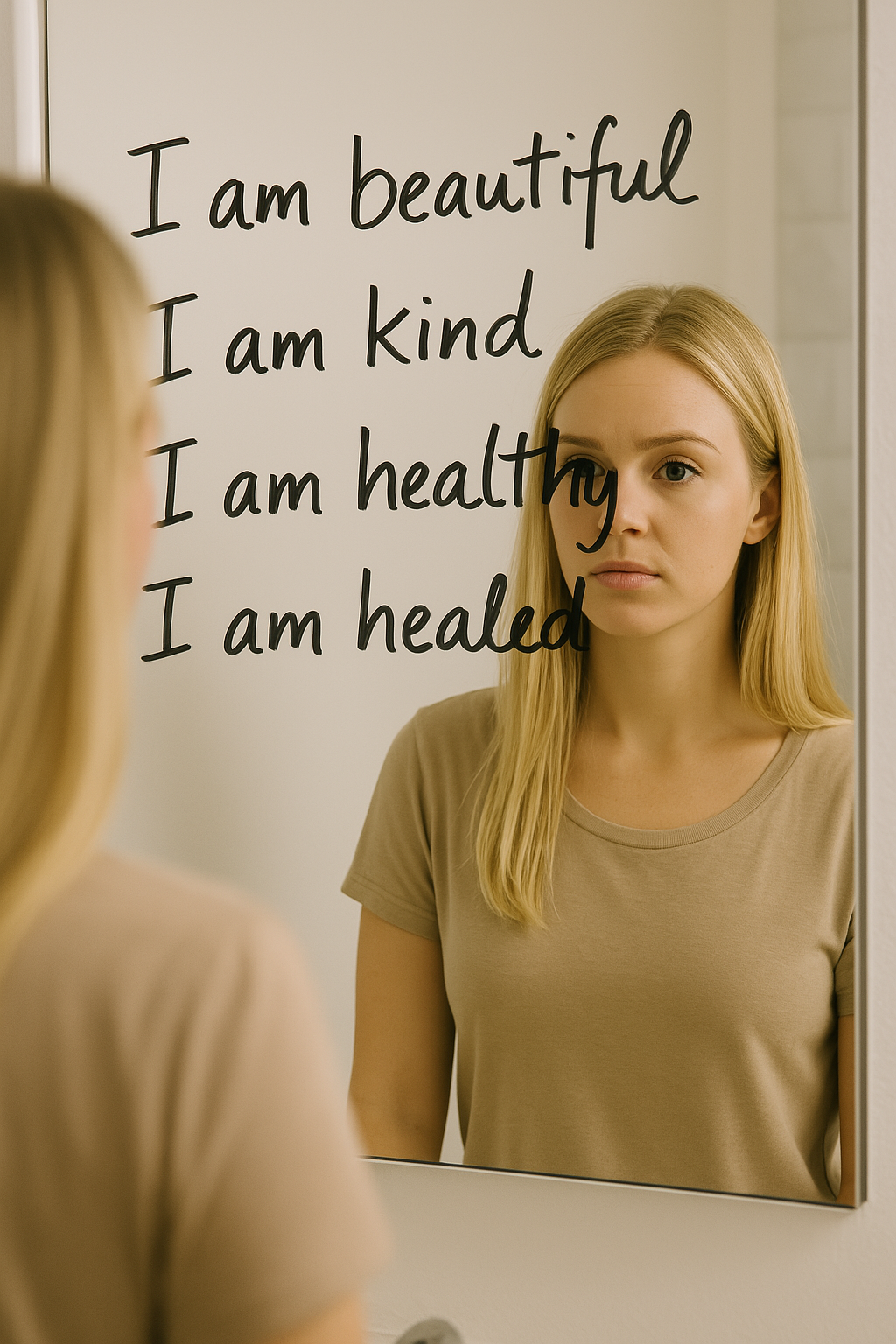Wake-Up Call: Harsh Words and Familiar Voices
You are ugly! You are stupid! You are fat!
Do I have your attention now?
If those words stung a little—good. They should. Most of us would never tolerate someone else saying that to us. We’d block their number, walk away, or throw a drink in their face (hey, depending on the day). So why is it that we allow ourselves to speak this way about ourselves?
Here’s the kicker: we’re usually the loudest, most relentless critics in our own lives. We say these things to ourselves. Maybe not out loud, but inside our heads—where it counts most.
The Two Most Dangerous Words
Lately, I’ve been paying attention to how often I throw around the words “I am.” Those two little syllables hold a whole damn universe inside them. And when I really started listening to myself, I was stunned by how often I used them to tear myself down.
The one I catch myself thinking the most is: I am sick.
And sure, you might see me out and about in my wheelchair and nod along like, “Yeah, that checks out.” But sickness isn’t just about a diagnosis. The word sick also means not well, not whole, not oneself.
And that’s not the full truth of me.
Because without MS, without any of the struggle—who am I?
It’s time to wake up to what I’m saying about myself, because “I am” is not just a statement—it’s a spell.
What You Name, You Claim
“I” and “am.” Two of the smallest words in the English language, and somehow, two of the most powerful.
We toss them around with reckless abandon.
“I am tired.”
“I am worthless.”
“I am a mess.”
If someone else said these things to us, we’d be horrified. But when it comes from our own inner voice, we take it as gospel truth.
Lately, I’ve been sitting with a deeper truth: in the Bible, God refers to Himself as I AM. That’s not just a flex—it’s a reminder of identity, power, and creation. And if we’re made in that divine image, then what we say after “I am” is sacred.
So why do we so often follow it with garbage?
Because it feels weird to say, “I am beautiful.” Or “I am brilliant.” Or “I am enough.”
We’ve been conditioned to think that speaking kindly about ourselves is arrogant. But self-love is not vanity—it’s sanity.
Rewriting the Script
It took me far too long to realize this, but every time I say “I am [something],” I’m putting a label on myself. I’m naming myself—and what we name, we tend to attract more of.
So if I name myself strong, joyful, healed, worthy, and I feel those words in my bones, I’m creating space for those truths to bloom.
Even if you don’t buy into manifestation or the law of attraction, there’s no downside to speaking kindly to yourself. The worst-case scenario? You feel better.
The Sacred Practice of “I Am”
So here’s my vow, and maybe it can be yours too:
I AM beautiful.
I AM kind.
I AM healthy.
I AM healed.
And when those darker, sneaky thoughts start crawling in—as they do, because life is messy and we are gloriously human—I will catch them. I will consciously redirect them. I’ll turn “I am tired” into “I am resting.” I’ll turn “I am broken” into “I am rebuilding.”
Because I was born in the light.
And I will choose to live in the light.
A Loving Nudge for You
My hope is that your I am statements are filling you up instead of tearing you down. That you speak to yourself with the same love you would offer your best friend or a child.
You are beautiful.
You are special.
You are loved.
Say it.
Say it again.
Then say it louder.
And so it is.
